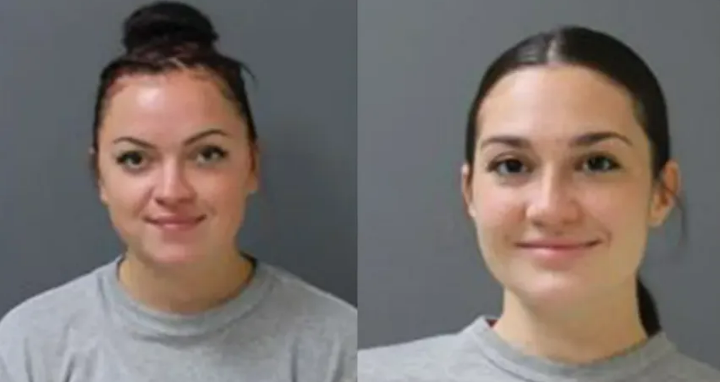Ms. Magazine - Take Beauty From Ashes: Felony Murder Law Reform
Felony murder charges are disproportionately lodged against the young, and differentially impact survivors of gender-based violence.

In 2017, Megan Cater and Briana Martinson were charged with aiding and abetting second-degree unintentional felony murder in the death of a Bloomington, Minnesota man in 2017. According to court documents, the two women broke into Corey Elder’s apartment in a group of four. While they went inside and ransacked the apartment searching for drugs, the two other male co-defendants violently assaulted Elder in his bedroom before killing him. Cater and Martinson were not in the bedroom when Elder was killed and neither had planned the murder or participated in the shooting.
After the Minnesota state legislature rewrote the laws on aiding and abetting the crime of felony murder so that only those who directly commit the murder or directly aid them can be charged with the crime, both women were resentenced on lesser aiding and abetting first-degree burglary crimes after Elder’s family provided a victim impact statement to the court. Due to time served, both women were released from prison.
Hennepin County Attorney Mary Moriarty said of the case, "It is not fair when two people get charged with murder when one of them pulled the trigger and the other one had no idea this was going to happen. Certainly both people have to be held accountable, but they should be held accountable for what they actually do.”
Laura Harrison, a professor of gender and women's studies at Minnesota State University-Mankato, recently wrote about the Cater/Martinson case for Ms. Magazine. Excerpts are printed below.
*****
In 2017, Briana Martinson, then 20, and Megan Cater, 19, went to the apartment of a man whom they believed had stolen medication from Martinson, with the intent to steal it back. The plan to retrieve the medication soon became a “telephone game,” in Martinson’s words, in which friends that they had asked to come along then invited others.
By the time they arrived at the apartment, Martinson and Cater were joined by several other individuals, two of whom were older men that the women did not know. According to Martinson, one of the men threatened them with a gun before entering, at which point she realized, “Okay, there’s no turning back.”
The young women say they were forced to lie on the floor at gunpoint, while in another room, one of the men shot and killed the victim that they had intended to rob. While neither Martinson nor Cater planned the murder or participated in the shooting, they were each sentenced to 13 and a half years in prison for aiding and abetting second-degree unintentional felony murder.
Was this a case of wrongful conviction? By the logic of the criminal justice system, the law worked exactly as it was intended to do. Minnesota, like most jurisdictions in the United States (and unlike almost every other country in the world), followed the legal doctrine of felony murder, in which an individual participating in a felony-level crime can be held criminally responsible for a homicide that occurs during the commission of that crime, even if they did not plan the murder or commit it themselves. The state of Minnesota reformed its felony murder law in 2023, based in large part on the relentless advocacy by Linda Martinson and Toni Cater, the mothers of Briana Martinson and Megan Cater. Their daughters’ experience offers fascinating and complicated insights into felony murder in the United States.
While Martinson and Cater’s case was instrumental in revising Minnesota’s felony murder law, those most likely to be convicted of this crime are disproportionately Black and brown men, mirroring broader injustices in the criminal legal system. In Minnesota, nearly 60 percent of felony or accomplice liability murder defendants in a recent study were Black, in a state where Black people make up just 7.6 percent of the population. These statistics for felony murder are of an even higher level of racial disproportionality than that of other types of homicide.
A year later, she and Toni Cater, Megan Cater’s mother, finally felt ready to act, on the urging of an attorney, to learn more about advocacy for felony murder reform in places like California, and begin petitioning Minnesota lawmakers to reform the state’s laws. The two mothers were not political before their worlds were changed by their daughters’ convictions, and had to learn as they went; they met with law professors, sent emails, showed up at the Minnesota state Capitol and knocked on doors. Everywhere they went, Linda Martinson told me, they showed lawmakers their daughters’ high school graduation pictures and photos of other impacted people in an attempt to humanize those who were incarcerated for crimes they did not commit. Storytelling was at the center of their efforts—particularly given the politically sensitive nature of their goal: trying to convince lawmakers to support legislation that could be spun as less “tough on crime.”
Today, Briana Martinson is trying to use her story to “take beauty from the ashes,” and “to fight for those that maybe don’t have as many opportunities as I have.” She said she dreamed about the opportunity to use her story to help others while she was still in prison, and is working toward that dream now, including participating with Megan and both of their mothers in a recent convention in Tennessee aimed at creating national felony murder law reform.
*****
You can read the full article, "‘Take Beauty From Ashes’: Advocating for Felony Murder Law Reform" at Ms. Magazine.










